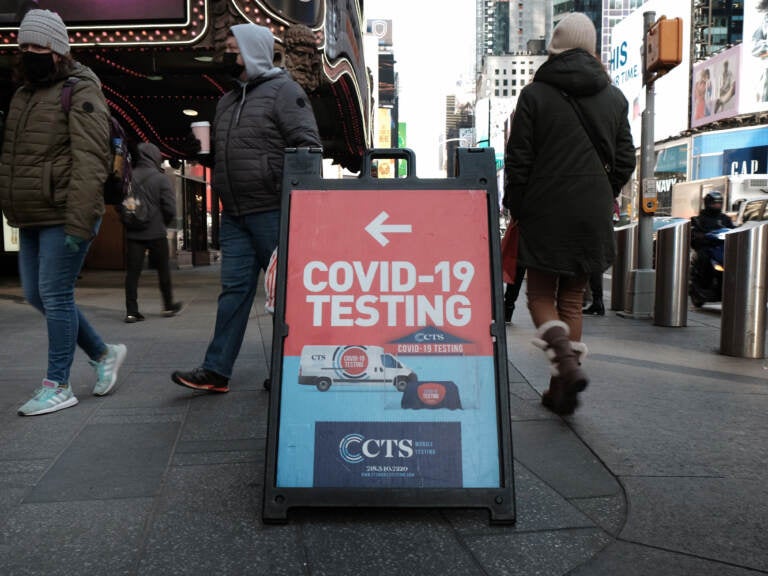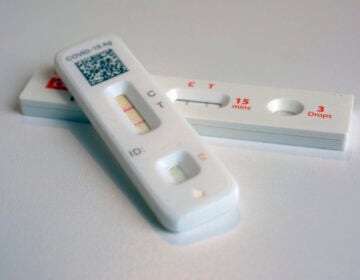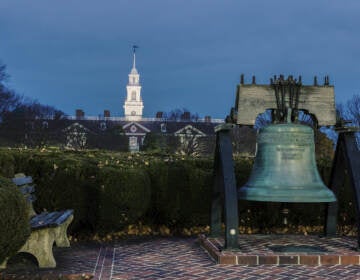The White House says it’s running out of money to cover COVID tests and vaccines

People pass a COVID-19 testing site on a Manhattan street on Jan. 21. The White House says it is running out of money to pay for COVID tests for people who don't have insurance. (Spencer Platt/Getty Images)
Next week, the White House says it will start to wind down a COVID-19 program that pays to test, treat and vaccinate people who don’t have health insurance.
It’s one of several immediate impacts after Congress declined to add $22.5 billion in funding to a broad government spending bill passed last week. President Biden is expected to sign it into law later on Tuesday.
Another impact: shipments of monoclonal antibody treatments to states will be cut by 30% next week, an official told reporters. Even after cutting back shipments, the White House expects the nation’s supply of those treatments could run out as soon as May.
The Biden administration is canceling plans to buy more of the treatment next week because of the lack of funding, the official said.
Democrats are expected to proceed with a standalone COVID funding bill, which is expected to pass the House but is unlikely to clear the Senate.
Without more funding, the government cannot buy more oral antiviral treatments like Paxlovid beyond the 20 million treatments already secured, and needs to scale back planned purchases of preventative treatments for immunocompromised people, the White House said.
And while officials say they do have enough vaccine doses available for immunocompromised people to get a fourth dose, if the rest of the population ends up needing an additional dose, they may not have the funds needed to meet the nation’s needs. The gap in funding would be particularly severe if a vaccine-evading variant comes along and a new formulation is needed.
The White House also said it will not be able to provide help to domestic manufacturers of at-home COVID tests beyond June, which it said will lead to diminished testing capacity.
“After spending the last year building up our testing capacity, Congress now risks squandering that capacity heading into the second half of this year,” a second official told reporters. “Because it takes months of ramp-up to rebuild capacity, failure to invest now will leave us less prepared for any potential future surges.”
Research into next-generation COVID vaccines will be curbed, and some surveillance for new variants will also be stopped, the White House said. The administration also will need to limit its push to help poorer countries vaccinate people.
9(MDAzMzI1ODY3MDEyMzkzOTE3NjIxNDg3MQ001))


![CoronavirusPandemic_1024x512[1]](https://whyy.org/wp-content/uploads/2020/03/CoronavirusPandemic_1024x5121-300x150.jpg)


